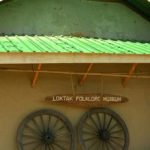
Today Closed UTC+5.5
08:30 AM - 06:00 PM
-
Monday
08:30 AM - 06:00 PM
-
Tuesday
08:30 AM - 06:00 PM
-
Wednesday
08:30 AM - 06:00 PM
-
Thursday
08:30 AM - 06:00 PM
-
Friday
08:30 AM - 06:00 PM
-
Saturday
08:30 AM - 06:00 PM
-
Sunday
08:30 AM - 06:00 PM


